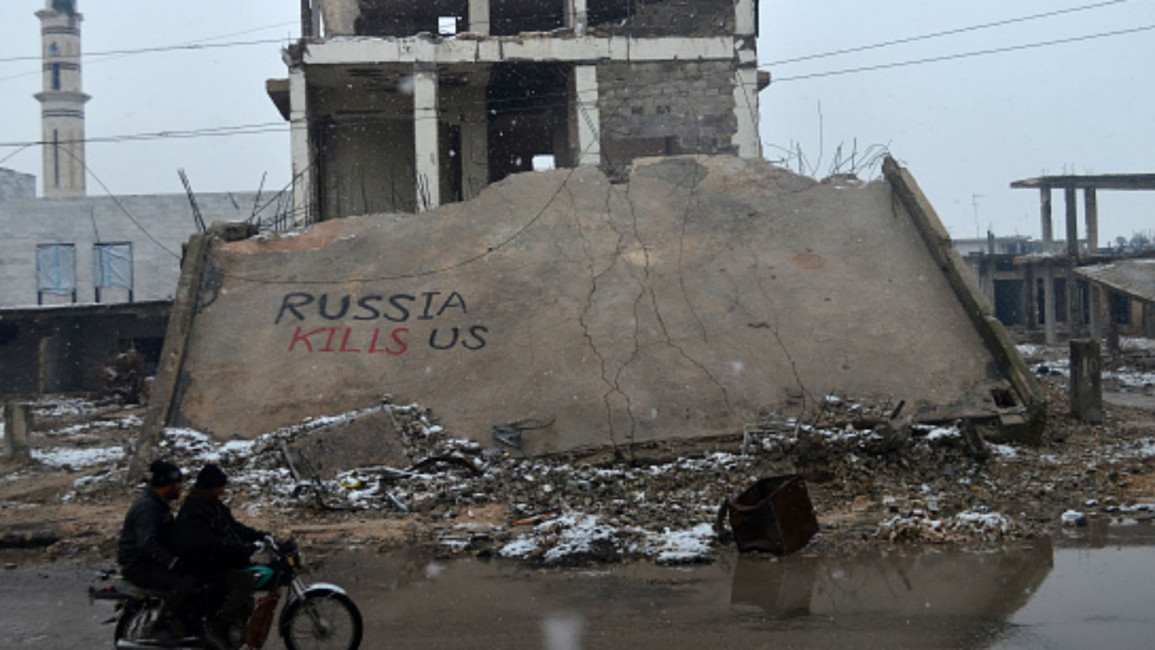Russia mounts major cyber-espionage campaign against Syrian organisations
Targets of cyber attacks have included the Syrian Observatory for Human Rights and are particularly focused on groups operating from Turkey, it adds.
Through the campaign, Russia seeks to "obscure" the extent of its military operations in Syria as well as the "flow of information" on the country's humanitarian crisis, the report said.
The Financial Times' report follows recent accounts over cyber-warfare and hacking assaults originating in Russia against political opponents of President Vladimir Putin's government.
In December, a Turkish English daily said the sources of a four-day long cyber assault on Turkish websites were hackers operating from Russia.
The British broadsheet, The Daily Telegraph reported a few-days later that Russia may also be the origin of a cyber DDoS [Distributed Denial of Service] attack against up to 400,000 websites with the Turkish .tr domain extension.
DDoS attacks are "brute-force" assaults that see millions of requests to a site's serve overload the target and unable to function and can be initiated by private individuals or hacking groups.
Turkish hackers were themselves allegedly responsible for a DDoS assault on the Russian central bank website in November.
DDoS attacks, while being highly disruptive, are unknown to have the ability to steal data from the target.
 |
Through the campaign, Russia seeks to "obscure" the extent of its military operations in Syria as well as the "flow of information" on the country's humanitarian crisis. |  |
The Financial Times' report however indicates a far more centrally planned operation with state support and strategic objectives of gaining secret information and controlling the flow of news.
The malware used by Russian cyber espionage attacks can erase data, spread false information using official accounts and give access to NGOs contacts, including highly sensitive targets, the report adds.
The Syrian Observatory for Human Rights, whose reports on the ground are regularly used by news outlets in the West, was named by the report as one particular target of assault.
The British-based observatory could not be reached for comments.
The uses of "cyber-assaults" have been noted to be a particular feature of the Russia's fight against Ukrainian authorities.
In December last year an attack on Ukraine's electrical energy grid that left approximately 700,000 homes without energy for several hours was publically pinned to Russia by the Ukrainian government.
Until recently however "cyber-wars" have seemingly remained a low-key feature of the Syrian civil war.
Attacks by a pro-regime outfit known as the "Syrian Electronic Army" from 2012 onwards defaced a number of opposition websites and sites of media outlets covering the opposition to Syrian President Bashar al-Assad's regime.
In return cyber-assaults by anti-regime groups and notably the hacker group "Anonymous" targeted a slew of regime websites, the latter in response to the Syrian governments continuous shutdown of the country's internet to control the flow of news.
The latest report however indicates a significant escalation in the nature of the scope and scale of the on-going "Syrian cyber-war."


![President Pezeshkian has denounced Israel's attacks on Lebanon [Getty]](/sites/default/files/styles/image_684x385/public/2173482924.jpeg?h=a5f2f23a&itok=q3evVtko)



 Follow the Middle East's top stories in English at The New Arab on Google News
Follow the Middle East's top stories in English at The New Arab on Google News


